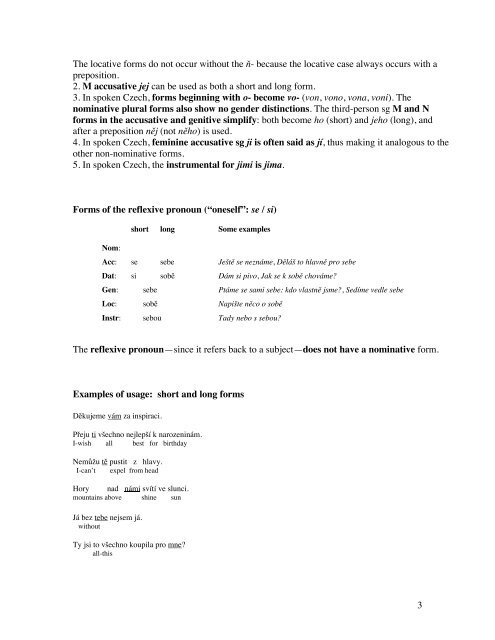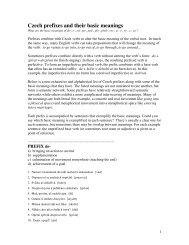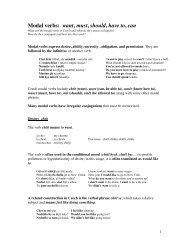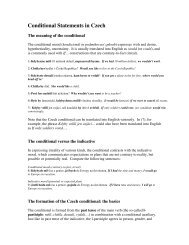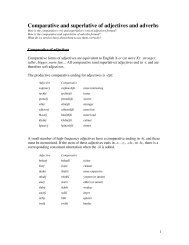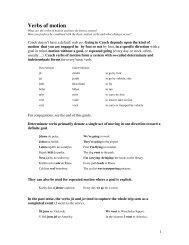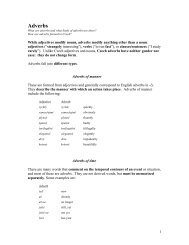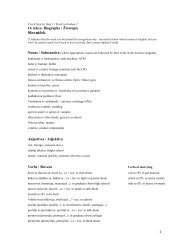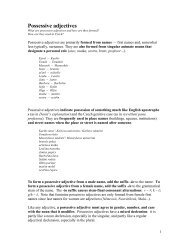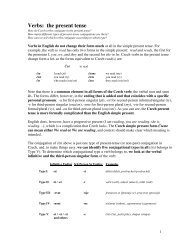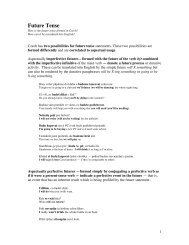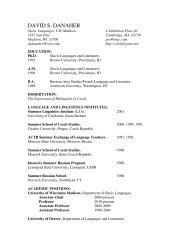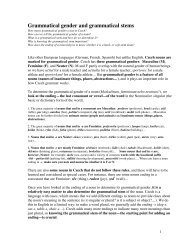Pronouns
Pronouns
Pronouns
You also want an ePaper? Increase the reach of your titles
YUMPU automatically turns print PDFs into web optimized ePapers that Google loves.
The locative forms do not occur without the ň- because the locative case always occurs with a<br />
preposition.<br />
2. M accusative jej can be used as both a short and long form.<br />
3. In spoken Czech, forms beginning with o- become vo- (von, vono, vona, voni). The<br />
nominative plural forms also show no gender distinctions. The third-person sg M and N<br />
forms in the accusative and genitive simplify: both become ho (short) and jeho (long), and<br />
after a preposition něj (not něho) is used.<br />
4. In spoken Czech, feminine accusative sg ji is often said as jí, thus making it analogous to the<br />
other non-nominative forms.<br />
5. In spoken Czech, the instrumental for jimi is jima.<br />
Forms of the reflexive pronoun (“oneself”: se / si)<br />
Nom:<br />
short long Some examples<br />
Acc: se sebe Ještě se neznáme, Děláš to hlavně pro sebe<br />
Dat: si sobě Dám si pivo, Jak se k sobě chováme?<br />
Gen: sebe Ptáme se sami sebe: kdo vlastně jsme?, Sedíme vedle sebe<br />
Loc: sobě Napište něco o sobě<br />
Instr: sebou Tady nebo s sebou?<br />
The reflexive pronoun—since it refers back to a subject—does not have a nominative form.<br />
Examples of usage: short and long forms<br />
Děkujeme vám za inspiraci.<br />
Přeju ti všechno nejlepší k narozeninám.<br />
I-wish all best for birthday<br />
Nemůžu tě pustit z hlavy.<br />
I-can’t expel from head<br />
Hory nad námi svítí ve slunci.<br />
mountains above shine sun<br />
Já bez tebe nejsem já.<br />
without<br />
Ty jsi to všechno koupila pro mne?<br />
all-this<br />
3


